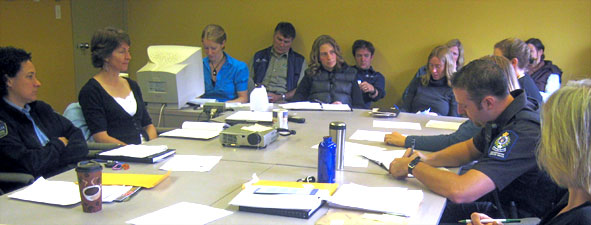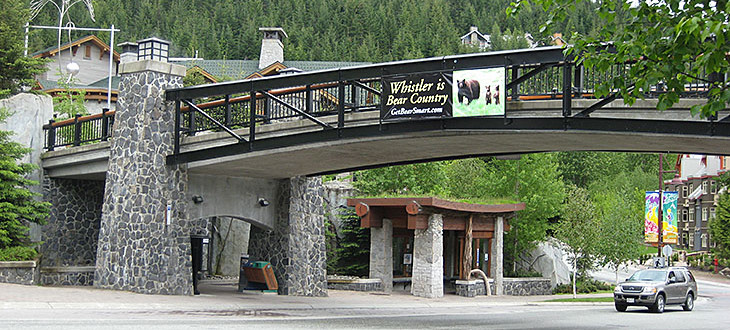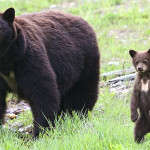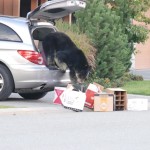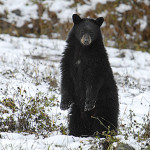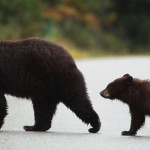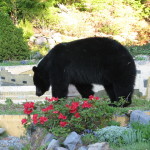Becoming a Bear Smart Community
The Minimalist’s Guide
Living in a Bear Smart community is not something that happens by accident or without hard work from a few, commitment from many, and buy-in from everyone. Wherever human communities bump 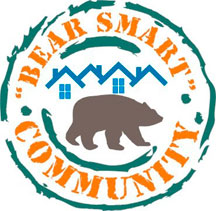 up against bear ranges there are bound to be human-bear conflicts and – sadly – without intentional advocacy on behalf of the bears, the bears always lose.
up against bear ranges there are bound to be human-bear conflicts and – sadly – without intentional advocacy on behalf of the bears, the bears always lose.
Thankfully throughout North America, communities of passionate people are forming around the call to reduce human-bear conflicts and good is being done to protect, respect, and advocate for our bears. Yet, there are still many communities across North America who could stand for a more proactive and integrated approach to becoming a Bear Smart Community.
Sylvia Dolson, the past executive director of the Get Bear Smart Society, says this: “It’s important to understand that there is no need to reinvent the wheel. Many communities have successfully launched effective BearSmart organizations. With the help of colleagues from all over North America, we have analyzed and synthesized what works and what doesn’t in order to provide the following guidelines that can help you start a BearSmart movement in your community.”
Here in British Columbia, we have adopted a Bear Smart Community Program to guide municipalities in becoming a recognized Bear Smart community. Currently, BC has nine recognized Bear Smart Communities including Kamloops, Squamish, Lions Bay, Whistler, Port Alberni, Naramata, New Denver, Coquitlam, and Port Hardy..
To qualify as a Bear Smart Community, BC communities must achieve six key pieces of Bear Smart Programming. They include:
- Complete a bear hazard assessment.
- Prepare a human-bear conflict management plan that is designed to address the bear hazards and land-use conflicts identified in the previous step.
- Revise planning and decision-making documents to be consistent with the human-bear conflict management plan.
- Implement an effective education program directed at all sectors of the community.
- Develop and maintain an effective bear-proof municipal solid waste management system.
- Implement and enforce “Bear Smart” bylaws prohibiting the provision of food to bears as a result of intent, neglect or irresponsible management of attractants.
Clearly these six pieces of criteria are not something easily won and there is due process required for much of it. However, we believe it’s worth it, we’ve seen some very encouraging signs of improvement here in Whistler, and we’re dedicated to being a resource and a soundboard to you and your community in walking down this road to Bear Smartness.
For more information on British Columbia’s Bear Smart Programming, please visit this link.
Giving a voice to our bears, Jer
